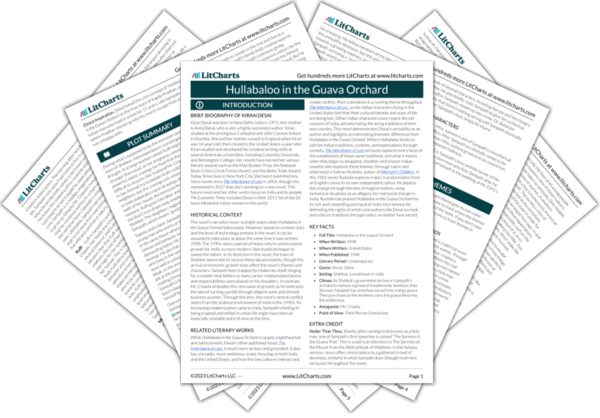This brief, peaceful moment in the orchard highlights many of the novel’s themes at once. In some ways, Sampath has successfully escaped from modernity into a carefree life in nature. To him, it seems as though chaos and fun have won the day, as he’s successfully played a joke on the visitors to the orchard and he isn’t expected to ever come down from his beloved tree. But at the same time, a few worrying details subtly undermine the seeming paradise of the orchard. The spirituality of people like Miss Jyotsna is being exploited, and in some ways, Sampath has merely switched from one set of expectations to another. The spy represents another undercurrent of modernity, creeping its way into Sampath’s simple existence. All the while, the countless misunderstandings and half-truths in this moment add more layers of absurdity and tension to the situation.
